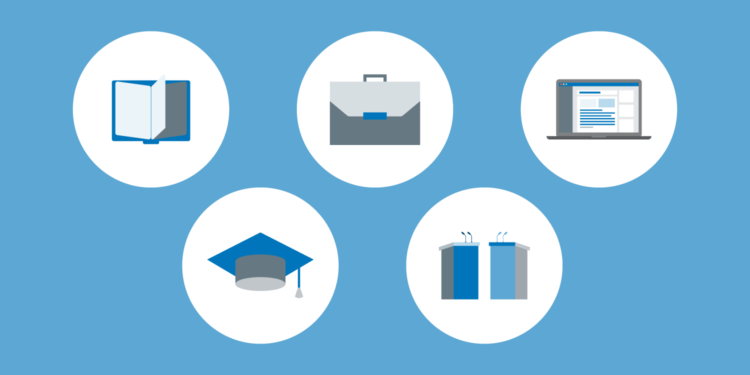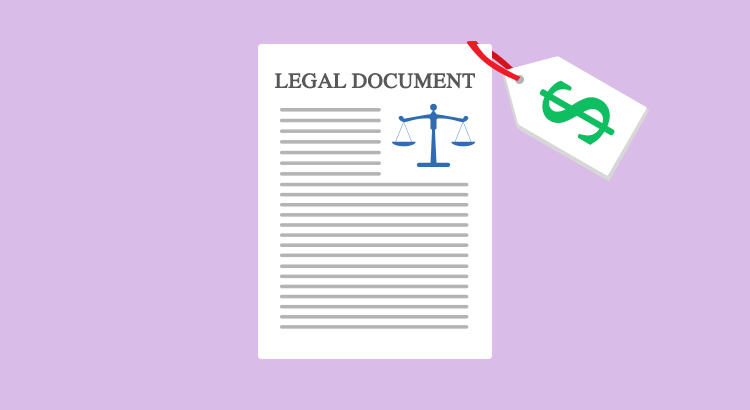The legal industry is evolving, and so is the paradigm of what it means to be a successful lawyer. For many attorneys, looking beyond the traditional law firm model makes sense at this moment. This is sparking a new rise in the prevalence of freelance attorneys.
What does a freelance lawyer do?

If you’ve been at a law firm, you know work volumes can ebb and flow. When firms need more capacity to handle overflow legal work (without hiring more staff), freelance attorneys fill the gaps—without the overhead.
What is a freelance lawyer?
A freelance lawyer is a lawyer who is hired by another lawyer—either directly or through a platform—to complete substantive legal projects by the hour or via a flat fee.
Many lawyers freelance
Because freelance lawyers work on an as-needed basis, they can work as much or as little as they want. This flexibility is central to why so many attorneys are starting to look for freelance opportunities.
As Kristin Tyler, Co-founder of LAWCLERK explains, well-qualified attorneys become freelance lawyers for a variety of reasons. These might include their location and mobiltity, where they are in their career, and what their current life circumstances are.
“They come from every background you can think of,” she explains. “We’ve got law professors that freelance. We’ve got former BigLaw attorneys with really specialized knowledge in really high-level legal areas that have gotten burnt out and don’t want to do the BigLaw race anymore, and so now they want to do freelance work. We’ve got lawyers that stay home with kids or with elderly parents. We’ve got retired and semi-retired lawyers with decades of experience.”
Types of work done by freelance lawyers
Freelance attorneys work in numerous practice areas on projects including:
- Appearance work. Freelance attorneys may be hired as appearance council to go to court (for example, going to hearings) on behalf of another lawyer. For this type of role, the freelance lawyer must be licensed in the jurisdiction where they’re making the appearance.
- Written substantive work. This could include research, document review, discovery, or drafting documents. Think motions, writing briefs, or contracts. You may even write law firm marketing blogs.
Why become a freelance attorney now?
If you’re drawn to freelance attorney work, you aren’t alone. From personal motivations (like needing more time at home to care for family) to professional ones (like wanting more control over the amount and type of legal work you do), working as a freelance lawyer is appealing for many reasons.
Concurrently, the legal industry is responding to the demand for freelance attorneys, with more firms outsourcing legal work. A 2019 Altman Weil Survey, for example, found that nearly half (48%) of law firms use contract lawyers. Globally, the legal process outsourcing market is rapidly growing. The market was recently projected to reach $30 billion by 2027, and was estimated to expand at a compound annual growth rate of 22% from 2021 to 2027. All of this indicates that law firms are increasingly open to freelancers, and are likely to continue doing so in the future.
Additionally, while the COVID-19 pandemic has impacted many law firms in negative ways, there may be an emerging silver lining for freelance lawyers. As Kristin notes in this episode of the Daily Matters podcast, some firms are using the moment to make it possible to outsource going forward.
“They’re taking that time and using it to finally set up the systems and processes that they’ve wanted to set up to properly delegate to freelancers,” she says.
Pros and cons of freelance lawyering

It’s important to weigh the pros and cons before you start looking for freelance attorney work. On the positive side, freelancing means more:
- Flexibility. Set your own schedule and work to your own capacity. You can freelance remotely (in the state that you’re licenced in, of course), so you can work from home or in a remote or rural location.
- Variety. Stay engaged by working on a variety of projects for different clients.
- Freedom from office politics. If you hate playing the game, freelancing keeps you out of it.
However, these cons could also be deal-breakers for your specific situation:
- Less predictability. The flip side to working as much as you want is that there are no guarantees for how much—or what kind of—work you’ll actually get. It can be feast or famine.
- Fewer opportunities for mentorship. You’ll miss out on opportunities for mentorship from senior lawyers—as well as the camaraderie you might enjoy with co-workers—unless you actively seek this out yourself in your community.
- Less help. As a freelance lawyer, you won’t have the valuable assistance of firm staff like paralegals, administrative assistants, and other legal professionals. You could hire a virtual assistant or hire freelance staff in turn, but this may be difficult if your income is unpredictable.
Carefully consider the benefits and drawbacks of freelance attorney work for your personal situation before taking the plunge.
How do I become a freelance lawyer?
If you have a law degree and are licensed to practice, there are absolutely opportunities for you as a freelance attorney. But if you want to be successful, you need to strategize and prepare before you jump in. Here’s how to get started.
Get malpractice insurance
Make sure that you’re covered with malpractice insurance for your work as a freelance attorney. While the firm that hires you should have sufficient malpractice insurance to cover your work for them (make sure you verify this!), you should also have your own coverage to mitigate any potential risk—so check with your malpractice insurance provider to ensure you’re covered with the right policy.
This FAQ resource from the American Bar Association offers useful tips on malpractice insurance for new, part-time, and contract lawyers.
You may like these posts
Find a way to get freelance clients
You’ve decided on the freelance lawyer life. Now, where do you find clients (aka, other attorneys) to hire you? You have a few options: Find clients directly, use a freelance platform, or do both.
As Kristin observes with LAWCLERK, a combination of strategies works best for many freelance attorneys. “We do have quite a few that solely feed themselves based on LAWCLERK work, but by and large the people I talk to generally have a few direct clients they work with, and then they do the gig work on our site.”
Market yourself
If you have a lot of experience, consider your network. Start by talking to the lawyers you already know, and use your old-school networking skills. Something as simple as letting other lawyers know that you’re available for freelance work can be a winning strategy.
Your online presence is another important marketing tool. At a minimum, have a LinkedIn profile so that hiring lawyers can find you online (and take the time to ensure your LinkedIn profile is polished and professional).
You may also consider setting up a website to market yourself as a freelance lawyer. However, be sure to check with your state’s attorney advertising rules to ensure you’re compliant. In New York, for example, the New York State Bar only recently offered guidance for freelance lawyers on how to set up websites to meet state professional ethics rules.
Use platforms

Platforms that connect freelance and hiring attorneys make it easier to find clients—cutting down the administrative hassle and guesswork. While you must, of course, limit your search on platforms to lawyers in the jurisdiction where you’re licensed to work, you’ll still gain access to a vast network of vetted hiring attorneys. Here are two good platform options to consider:
LAWCLERK
LAWCLERK (which is free to join) is an online marketplace for law firms to outsource work to freelance attorneys. LAWCLERK makes freelancing easier for lawyers by vetting hiring attorneys and handling tax reporting and payment. Because LAWCLERK integrates with Clio, you can seamlessly link your Clio and LAWCLERK accounts to stay organized and efficient.
Hire an Esquire
Hire an Esquire connects the legal industry with the gig economy with algorithm-assisted matches. The platform simplifies the process of taking on lawyer freelance work—they handle payment (get paid for your work weekly by direct deposit) and tax documents. Hire an Esquire also offers insurance benefits and career assistance.
Build yourself a winning freelance profile
If you’re using a platform, you’ll need a great profile to attract good clients (i.e. lawyers and law firms that communicate well, provide work that suits your skills, and pay competitively). Here are four tips:
- Showcase your strengths. Clearly show who you are and what you can do. Outline your qualifications, experience, the types of law you practice and legal work you do, and areas of specialization. If you include your lawyer resume in your profile, make sure you update it first.
- Use a strong profile photo. As with any online profile, appearances set the tone. Keep your photo professional (wear professional attire and use a simple background), but approachable and friendly.
- Have writing samples ready. Leverage your writing skills as a freelance attorney with samples that show your expertise. For litigation work, use documents that you’ve filed that are public record as samples. For more transactional work, writing samples must be anonymized to protect confidentiality. For example, change client names to something anonymous like Jane Doe and make sure there are no additional identifying details.
- Show your track record. Since you don’t know the hiring attorneys, references are a must. This could mean tracking down a traditional reference, but you might be able to build them into your profile. LAWCLERK, for example, has a two-way rating system for attorney profiles that shows how you’ve performed in the past.
For a more comprehensive overview, this webinar with Kristin offers more tips for setting up a winning freelance attorney profile.
Determine your freelance lawyer hourly rate

According to the 2021 Legal Trends Report’s Billable Hour Index, hourly rates have increased to an average of $251 (as of 2021). However, determining your rates is more complex when you’re a freelance attorney.
There are a number of factors to consider, including:
- Your experience. If you’re new to the profession, you might not be able to demand top rates. An experienced lawyer, however, can leverage that expertise to attract higher-paying clients.
- Location. Consider what area you’re in when determining your rate. Freelance attorneys in large metropolitan cities garner higher rates than those working for a firm in a small rural community.
- Practice area. Projects in areas like corporate law or complex litigation can set higher rates.
- Timelines. Rush jobs and projects on tight timelines generally pay more—for a reason.
- Taxes. Tax rules for contractors are different than they are if you’re employed at a firm, and there are extra considerations and responsibilities (like self-employment tax). Learn the rules at the start, and factor into your financial calculations.
Charging a flat fee is another viable alternative. A flat fee gives transparency to all parties involved. When everyone knows what the costs will be from the outset of the project, no one feels slighted once work is complete. Learn more about how to determine the price of flat fee legal services.
Never start work without a contract or agreement
This might go without saying, but a written agreement with the hiring attorney or firm is essential before you start on any project. If you’re using a freelance lawyer platform, this agreement may be built-in—but it’s your responsibility to ensure you’re covered.
Your written agreement should be clear on factors like scope, agreed-upon compensation, ethical and legal considerations. Also, make sure you do any conflict checks from the get-go.
Sample attorney freelance agreement
For an example of a freelance work agreement, check out this sample agreement from Kimberly Alderman’s The Freelance Lawyering Manual on the Minnesota Freelance Attorney Network’s website here.
Use tools to collaborate

Technology makes it easier for firms and freelance attorneys to work together, remotely.
If you’re working with a law firm, check if you can have access to tools that might make the experience smoother. Use of the firm’s practice management software (with access limited to the cases you’re working on) or communications apps could help both you and the hiring attorney.
If you’re working with a platform, learn what tools are available to you. LAWCLERK, for example, offers built-in chat features.
You may also want to invest in tools to enhance collaboration. Calendly’s free software can help you schedule meetings with freelance clients (or if you’re using the Clio Suite, Clio Scheduler can help). Clio Manage’s case management software can also make it easier to connect with co-counsel and freelance clients.
Invest in building relationships
Building strong relationships with clients and colleagues has always been key to your career. This is even more important when you’re a freelance lawyer because having firms that want to work with you again and again means you spend less time chasing gigs (and income).
“The most successful freelancers tend to have two to four direct clients—either attorneys or law firms that they’re doing work for directly. They do work for us as well,” Kristin says.
Keep these points in mind to keep clients coming back:
- Always deliver (or over-deliver). Every freelance project you take on is an opportunity to showcase your skills and expertise—so make sure you give them what they ask for (or more).
- Meet your deadlines. When you’re just starting, Kristin’s seen a tendency to overextend and fall behind. Her advice? “You’ve got to pace yourself.” Start small and ensure you have the bandwidth to complete a project so that you don’t burn any bridges.
- Put clients first. We’re living in an experience-driven world, so consider your client’s experience in everything you do (since your clients are other attorneys, this should be easy!).
Final thoughts on becoming a freelance lawyer
The world is always changing, and so is the legal industry. If your career is shifting in turn, know that you have options. Whether you’re looking for ways to earn extra income or you’re in the midst of a career change, it might be time to consider how to leverage your skills as a lawyer as a freelance attorney. If you know the rules and have a strategy to find—and keep—clients, freelance lawyer work could empower you to supplement your income and take control of your legal career.
Note: The information in this article applies only to US practices. This post is provided for informational purposes only. It does not constitute legal, business, or accounting advice.
We published this blog post in July 2020. Last updated: .
Categorized in: Business








